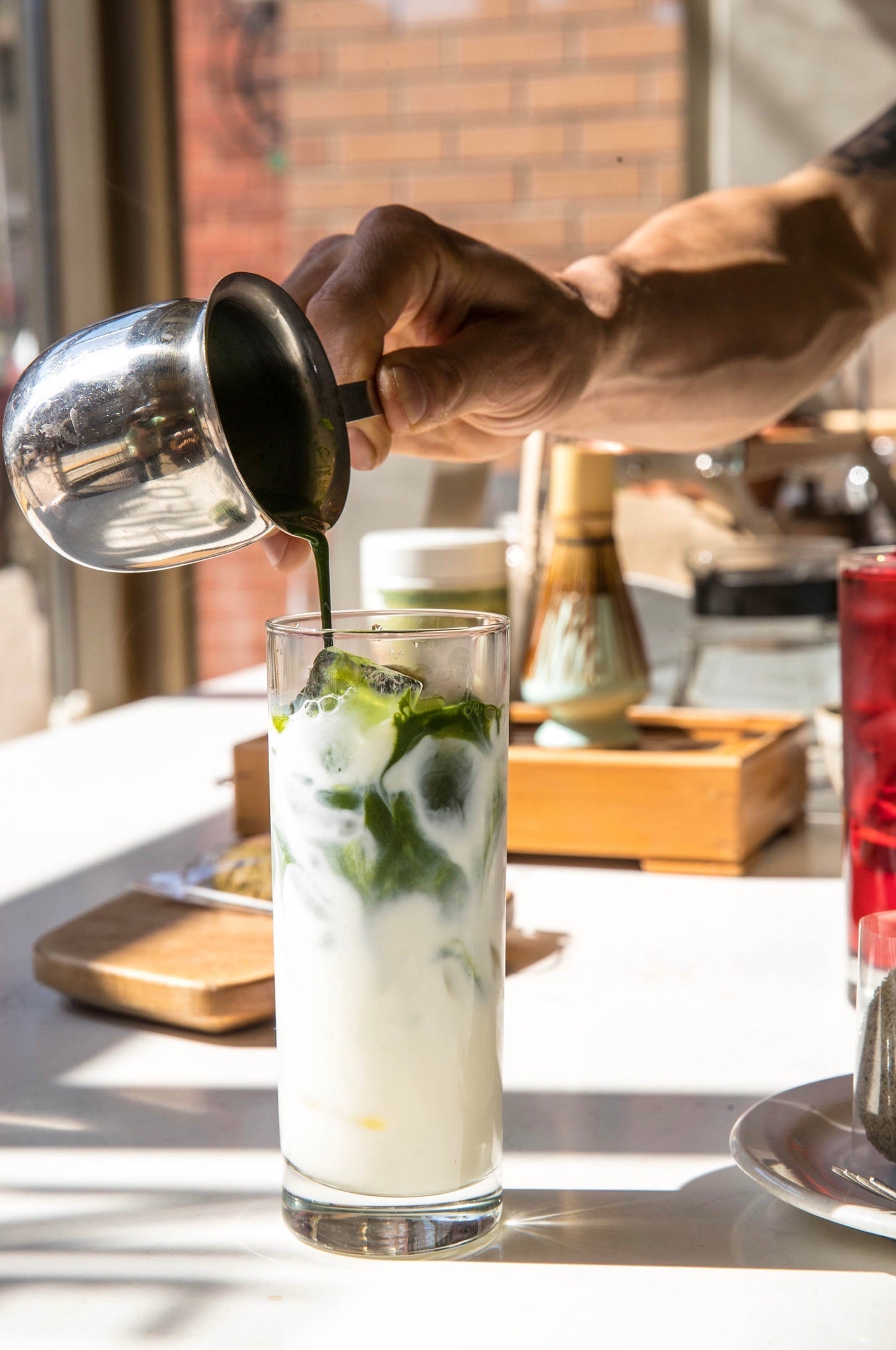
Matcha for Specialty Coffee Lovers - A Comparative Guide
by Coffee Analytica Team
·
For specialty coffee enthusiasts, coffee isn’t merely a drink; it's a passion steeped in culture, nuanced flavours, and precise preparation methods. Matcha, a finely ground powder of specially grown and processed green tea leaves, shares surprising parallels with the coffee world, making it an intriguing alternative for those seeking variety or a gentle shift in their caffeine habits. Let's explore matcha through the lens of specialty coffee.
Origins and Terroir: From Coffee Farms to Tea Gardens
Just like coffee beans, matcha leaves are influenced heavily by their growing regions, climate, and farming methods. Matcha primarily comes from Japan, specifically renowned areas like Uji and Nishio. These regions, similar to coffee’s famous terroirs like Ethiopia’s Yirgacheffe or Colombia’s Huila, impart distinctive flavours to the tea leaves.
Processing and Preparation: Precision Matters
The attention to detail in preparing specialty coffee - measuring grind size, water temperature, and brew time - mirrors the careful preparation of matcha. High-quality matcha is shade-grown for weeks before harvest, increasing chlorophyll levels, which enhances its vibrant green colour and umami flavour. After steaming, drying, and careful milling into powder, matcha preparation requires precise water temperatures (typically around 70-80°C) and whisking technique, much like perfecting the pour-over coffee method.
Taste Profiles: Understanding Matcha Through Coffee Analogies
Matcha presents a complex flavour profile that specialty coffee drinkers can appreciate. High-quality ceremonial matcha often has a naturally sweet, vegetal, umami-rich taste, much like coffee's fruity, floral, or chocolatey notes. Lower quality matcha may taste bitter or astringent, analogous to the difference between specialty-grade coffee and lower-grade commercial beans.
Health and Energy: Smooth Alertness vs Coffee Kick
Matcha contains caffeine but in lower quantities compared to coffee. A typical matcha serving has about 30-70mg of caffeine compared to roughly 95mg in a regular coffee cup. Matcha also contains L-theanine, an amino acid that promotes a calming yet alert mental state, contrasting with coffee's sharper caffeine spike and possible subsequent crash. Specialty coffee drinkers might enjoy matcha’s smooth, sustained energy boost, especially if sensitive to coffee jitters.
Tools of the Trade: Coffee Gear Meets Matcha Equipment
Specialty coffee enthusiasts love their gear - grinders, kettles, scales, and brewing devices. Similarly, matcha preparation features its unique tools, including the bamboo whisk (chasen), bamboo scoop (chashaku), and ceremonial bowl (chawan). Just as the right coffee gear enhances flavour and experience, proper matcha equipment ensures optimal texture and taste.
Community and Culture: Rituals That Connect
Much like specialty coffee culture fosters community through cafés, barista championships, and tasting events, matcha boasts its rich traditions and social rituals, notably the Japanese tea ceremony (chanoyu). Both beverages encourage mindfulness, appreciation of nuanced tastes, and sharing these experiences socially, enriching the drinking experience.
Making the Switch or Incorporating Matcha
For specialty coffee lovers curious about matcha, consider starting with high-quality ceremonial grade matcha. Treat matcha tasting like a coffee cupping session - observe the appearance, savour the aroma, sip thoughtfully, and note the evolving taste profiles. Incorporating matcha into your routine doesn't mean abandoning coffee; rather, it offers an enriching, complementary experience.
Conclusion - Embracing Matcha as a Coffee Enthusiast
Exploring matcha is a rewarding journey for specialty coffee aficionados, offering familiar sensory experiences in new, intriguing ways. Whether for its smooth energy, mindful ritual, or fascinating cultural context, matcha deserves a spot on every coffee lover’s radar.